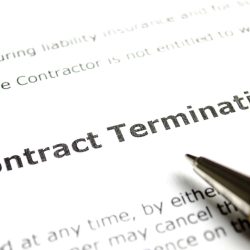 A fiduciary duty is the highest standard of care. A person who owes the duty is referred to as the “fiduciary” and the person that is owed the duty is generally the principal or beneficiary. In the business context, directors, managers, members of LLCs, and others who manage the operations of a business can owe a fiduciary duty. For example, in many states, directors of corporations owe a fiduciary duty to the shareholders. There are two primary fiduciary duties in the business context:
A fiduciary duty is the highest standard of care. A person who owes the duty is referred to as the “fiduciary” and the person that is owed the duty is generally the principal or beneficiary. In the business context, directors, managers, members of LLCs, and others who manage the operations of a business can owe a fiduciary duty. For example, in many states, directors of corporations owe a fiduciary duty to the shareholders. There are two primary fiduciary duties in the business context:
- Duty of Care. This requires that directors ensure that they have done the required homework to make wise, informed decisions for the benefit of the shareholders. In other words, directors need to make sure they are well informed and of all material information that will allow them to make smart decisions for the welfare of the company.
- Duty of Loyalty. Directors are forbidden from using their position of trust and confidence for their own private interests. This is based on the public policy interest that holds directors must not use information that they acquired in a position of authority for their own private gain, often at the expense of the company.
What is a breach of Fiduciary Duty?
A breach of fiduciary duty occurs when the fiduciary acts in the interest of themselves, rather than the best interest of the employer or principal.
A fiduciary’s actions must be free of conflicts of interest and self-dealing. As a fiduciary, you can’t use the principal for your own personal advantage. In other words, you can’t use corporate property or corporate assets for your own personal gain, nor can you take advantage of a corporate opportunity for your own personal pursuits. Depending on the actions of the fiduciary, fraud may also be an issue, but this is typically a more complex legal matter.
A breach of fiduciary duty complaint is much easier to prove than fraud as there’s no need to prove fraudulent or criminal intent. To win a breach of fiduciary duty complaint, the claimant only has to prove that you were in a fiduciary position and you breached that duty for your own personal gain.
How to Avoid a Breach of Fiduciary Duty
One way to avoid breaching your fiduciary duties is to ensure that decisions are documented every time a major decision is made by the board of directors or shareholders on the company’s behalf.
It’s also important to understand the basics of fiduciary duty so that you know what’s to be expected of you, and what actions might be in breach of your duty.




